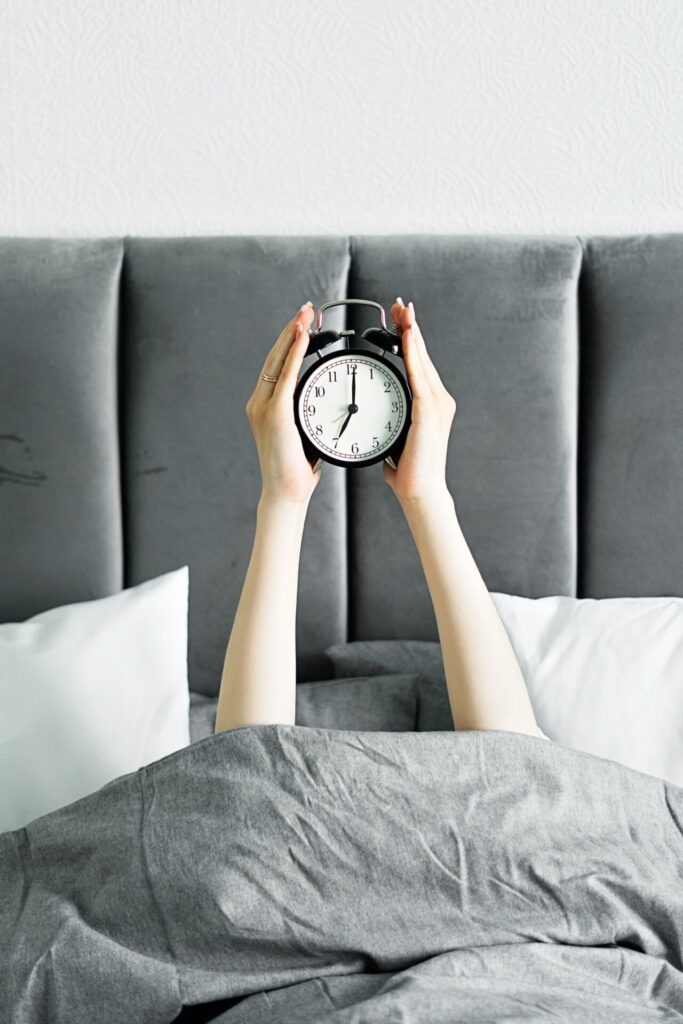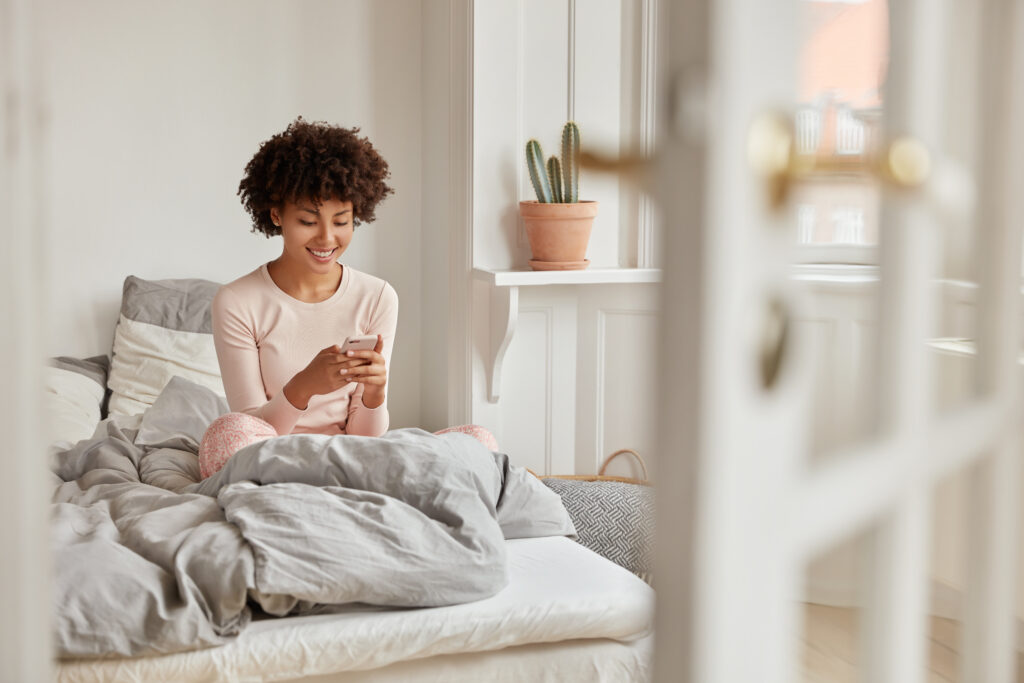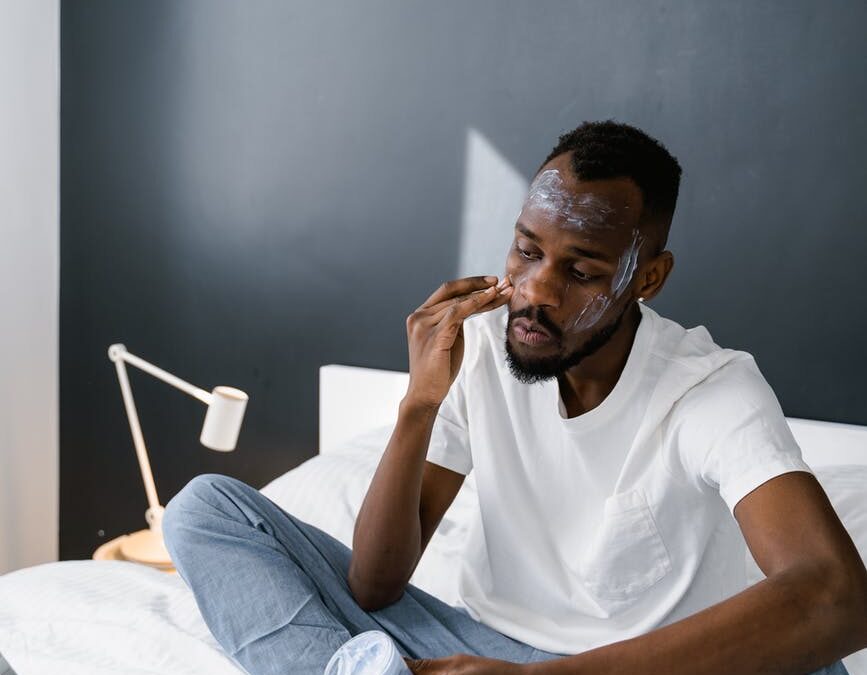Taking care of yourself is crucial. While many understand the importance of a good morning routine, they may forget the importance of an evening routine. After all, a restless night can make it challenging to start your day on a positive note. This blog delves into why evening routines are crucial for healthy sleep, productivity, and overall well-being and offers practical tips to enhance your sleep habits.
Evening Routines and Sleep:
Quality sleep is undeniably crucial, impacting both your health and your daily life. We’ve all experienced the consequences of a poor night’s rest—sluggishness, grogginess, and overall difficulty in functioning. Sleep deprivation not only affects response times and decision-making but also hampers creativity, thinking, and learning abilities. Moreover, it takes a toll on the immune system, jeopardising overall health.
So, how much sleep do you need? This is a common question heard in the bedding industry. Unfortunately, there’s no one-size-fits-all answer because everyone’s sleep needs are unique.
Getting sufficient sleep is as crucial as eating right and exercising for overall health. It’s worth noting that the more we stress about our sleep needs, the more it can negatively impact our sleep quality.
Adults generally require about 7-9 hours of good quality sleep, but individual preferences vary. The objective is to wake up feeling refreshed and ready for the day. Children, in their growing and developing stage, need more sleep based on their age.
Given our busy lives, achieving this recommended sleep duration can be challenging. Many of us struggle to fall asleep because of stress and racing thoughts. A well-crafted evening routine is crucial. It gives dedicated time to relax, unwind, and prepare for quicker and earlier sleep.
Sleep deprivation:
Sleep deprivation is more lethal than food deprivation! The record for the longest period without sleep stands at 11 days, set by student Randy Gardner in 1964. While he survived, severe sleep deprivation symptoms emerged. Others attempting extended wakefulness have faced fatal consequences.
Needless to say, it’s not a practice recommended for anyone’s well-being!
Creating an Evening Routine:
It’s crucial to teach your body when it’s time to wake up and prepare for sleep. Keeping the same bedtime and wake-up time every day, including weekends, helps your body adjust to the necessary amount of sleep. Irregular bedtimes can disrupt your sleep rhythm, so prioritising a consistent bedtime is essential.
Tune into your circadian rhythm: Work with your body’s biological clock, identifying when you naturally feel tired as the sun sets.
Set consistent sleep times: Establishing a regular bedtime and wake-up time, creates a sleep routine that aligns with your body’s natural rhythms.

Other Tips for Your Evening Routine:
Watch what you eat and drink: Late-night cravings are common, and many of us have given in to them. Eating late at night raises body temperature, impacting sleep onset, quality, and different sleep stages, harming overall sleep health.
Similarly, relying on caffeine as an afternoon energy boost may hinder sleep by suppressing adenosine receptors. Since caffeine’s half-life is around five hours, it can linger in your system, making it challenging to fall asleep. To promote better sleep, consider stopping caffeine intake at least five hours before bedtime.
While alcohol is often viewed as a sleep aid, it can disrupt sleep patterns, leading to shallow sleep after initial deep phases.
We recommend consuming light, healthy meals, and avoiding heavy foods close to bedtime. Make sure you stay hydrated during the day, but limit caffeine intake in the evening.
Organise and plan: Dedicate time to tidy up before getting ready for bed. Maintaining a clutter-free bedroom contributes to a tranquil mind and fosters a relaxing environment. Organise for the next day, and set clear goals as this minimises morning stress and forgetfulness. Taking 15 =to 20 minutes for this can improve your sleep, make your mornings smoother, and start the day with a clear and focused mind.
Stay away from screens: Blue lights emitted from gadgets can interfere with sleep. The blue light suppresses the production of melatonin, a hormone that regulates sleep, making it harder for the body to wind down and prepare for sleep. Scrolling through social media, looking at the news or even doing a bit of late-night shopping, can all prompt the release of wake promoting hormones. Using gadgets before sleep can stimulate the production of wake-promoting hormones like serotonin or cortisol.
To improve your sleep, turn off electronic devices, like TVs, phones, and gadgets, an hour before bed. We recommend considering reading, listening to music, or journaling instead.

Dim the lights: Dimming the lights signals the body to start preparing for sleep, as melatonin, the sleep hormone, is naturally released in response to decreasing light levels in the evening. Artificial lighting can disrupt the normal production of melatonin, potentially keeping you awake at night.
We recommend dimming bright lights and creating a darker environment to support better sleep. To prevent the sunrise from waking you and disrupting your body clock, use an eye mask and blackout curtains.
Meditate: Practice meditation or yoga to relax your mind and body, preparing for a restful sleep. Apps like Calm and YouTube videos offer helpful guidance. We recommend clearing the brain of stresses and stressors alongside some deep breathing techniques.
White noise: White noise can create a soothing and constant background sound, potentially improving the overall sleep environment. Use white noise machines or apps to produce soothing sounds, aiding relaxation and promoting restful sleep. However, white noise effectiveness varies among individuals, so finding what works best for your sleep preferences is crucial.
Body Temperature: Body temperature undergoes a decrease during the nocturnal sleep phase and increases during the waking phase. We recommend avoiding activities that might elevate your body temperature before bedtime, like taking a hot shower or bath.
Room temperature: To improve sleep, keep the room temperature between 60 and 65 degrees Fahrenheit (16 and 18 degrees Celsius). Make sure the sleep environment is comfortable and cool to help your body naturally regulate temperature during the night. Individual preferences may vary, so finding the temperature that ensures personal comfort is key to restful sleep.
Night-time rituals: Establishing good bedtime routines is crucial for promoting healthy sleep, boosting productivity, and enhancing overall well-being. Consistent nighttime practices signal the body that it’s time to wind down, creating an optimal environment for restful sleep.
Sleep environment: Invest in a comfortable mattress, quality pillows and bedding for a blissful night’s sleep. Your well-rested self will thank you in the morning!
Evening routines – a key to better sleep
A good night’s sleep, in turn, supports increased focus, better decision-making, and heightened productivity during the day. Additionally, evening routines aid in stress management and support overall mental and emotional balance, fostering a sense of well-being.
Remember, establishing an evening routine takes time, so stay organised and committed for long-term benefits.

